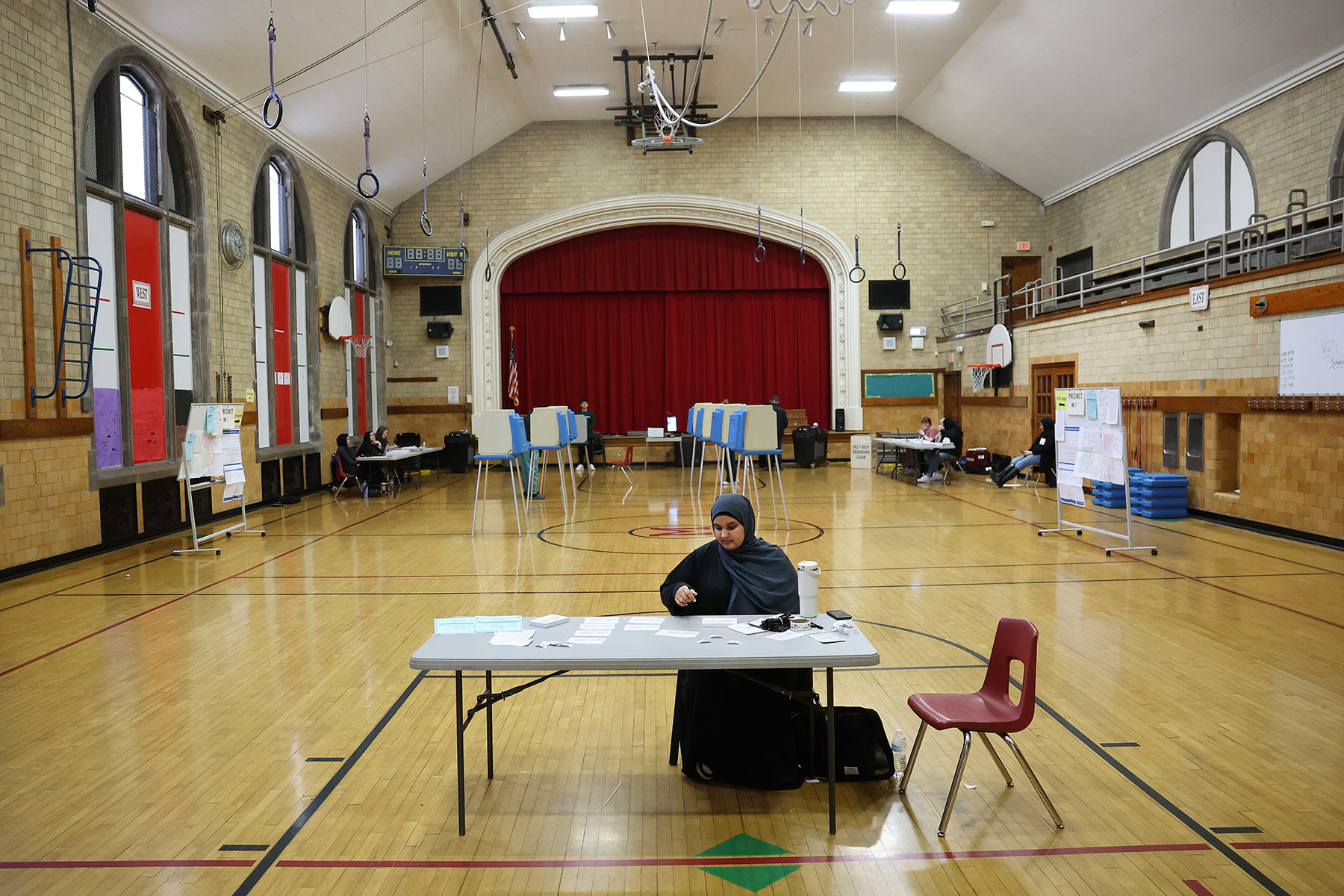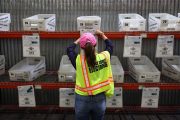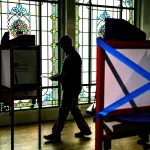Tate Fall has only been the top elections administrator in her Atlanta suburb for a few months, but she is already hyper aware of safety.
As the new director of elections in Cobb County, Georgia, Fall trains poll workers on how to deescalate situations that might arise when they’re interacting with the public. She grapples with difficult questions from some of those she’s recruiting to work the 2024 general election: Should they receive active shooter training? Is there a continued threat of receiving letters laced with fentanyl?
At the end of every work day, Fall checks her car’s rearview mirror to make sure she’s not being followed home. When she goes to the supermarket, she finds herself checking for exits.
“Whenever I meet someone new, I never tell them what I do right away. I just say, ‘Oh, I work for Cobb County. What do you do?’ and I try to change the subject,” Fall said. “Because you just never know. You never know what people are going to think, or what they’re going to say, or what they’re going to do.”
Nearly four years since former President Donald Trump began to spread debunked conspiracy theories about voting fraud that persist to this day, the experiences of officials like Fall remain an important barometer of the health of America’s elections. The predominantly women-led workforce is preparing for another consequential November even as they experience harassment and threats of political violence. That includes trying to combat disinformation and the potential impact of artificial intelligence on how it’s created and shared.
They’re also facing the highest rate of turnover of top full-time election jobs in years, according to new data.
Still, roughly seven months before voters cast a ballot, this workforce is cautiously optimistic that they can meet the moment, according to interviews with administrators around the country. But they’re calling for more sustainable government funding that would help them do their jobs better — and legislative policies that prioritize their safety.
“Our election officials across the country are excellent and really committed to this work,” said Shenna Bellows, the secretary of state in Maine. “It’s devastating that I have to train our local election clerks in threat analysis and reporting and de-escalation. But that’s the new reality.”
Bellows has felt this reality up close. At the start of the new year, she was doxxed — meaning her home address and private cell phone number were shared online. Then her home was swatted — meaning someone reported a fake crime to trigger a large law enforcement response.
Both came shortly after she announced, citing the Constitution and in response to voter challenges, that she would remove Trump from the state’s primary ballot for his role in the January 6, 2021, insurrection. She stayed the decision while waiting on courts, and reversed course after the U.S. Supreme Court overturned a similar action from Colorado’s secretary of state.
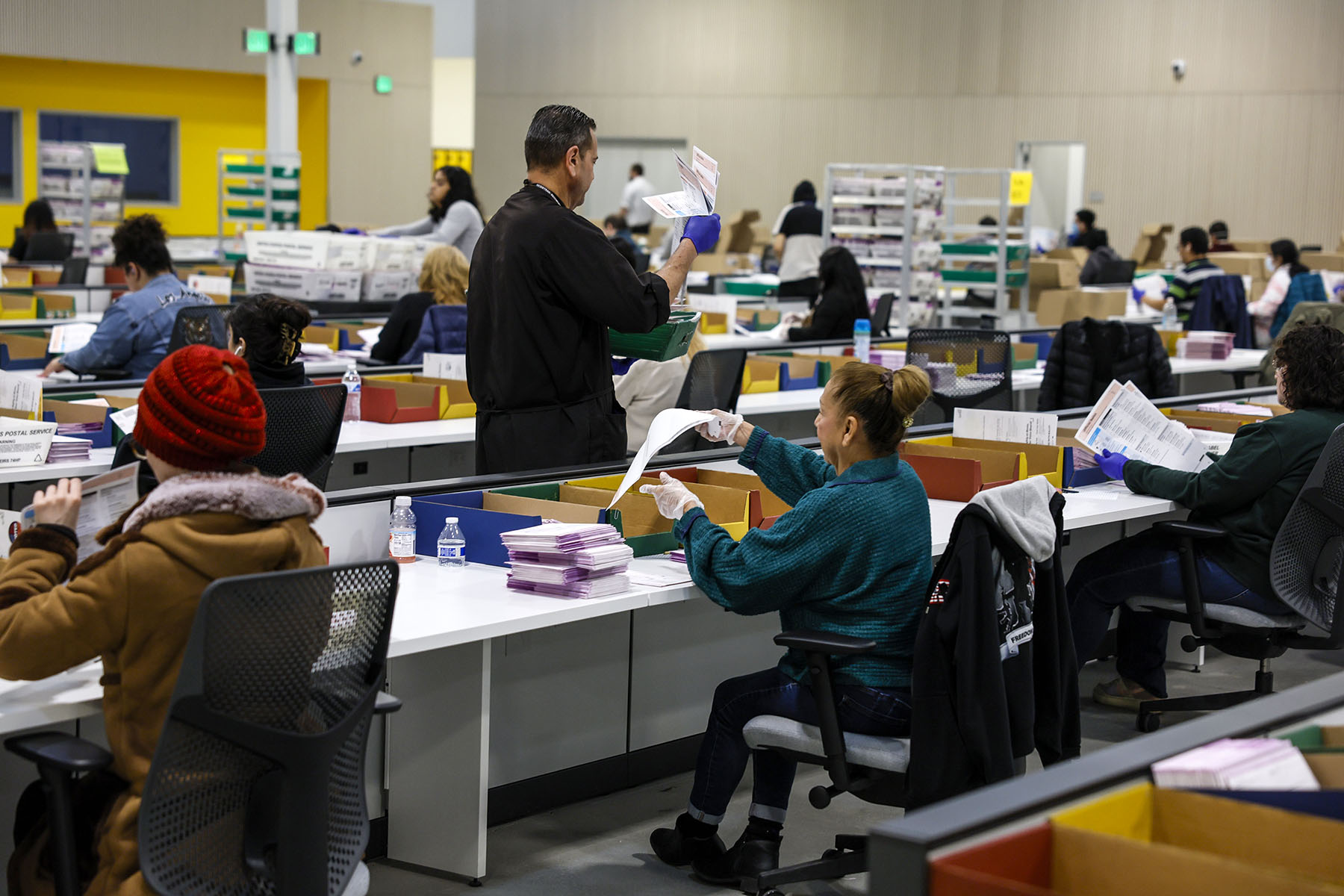
Bellows, a Democrat, emphasized that only a small minority of people are seeking to create a sense of fear or danger — but that the serious and public targeting of election officials is an effort to undermine democracy.
“That can have a chilling effect on people entering into the field,” she said. “It’s a distraction from the enormous amount of work that’s required for the administration of our elections.”
Tonya Wichman, director of the Defiance County Board of Elections in northwest Ohio, has several elections under her belt. She said she’s more concerned than ever about the safety of her staff.
“There’s a lot of animosity because of the misinformation that’s out there on how elections are run,” said Wichman, a registered Republican. “We spend a lot of time trying to explain and answer questions on how we actually run elections. But not everybody wants to hear that.”
An expansive report released this month by researchers and the Bipartisan Policy Center, a nonprofit think tank that tracks policy and offers best practices for local election officials, shows some of the quantifiable cracks. They used data from over a 20-year period that examined more than 18,600 local chief election officials across more than 6,200 jurisdictions. Turnover among top election workers — people in charge of administering voting, not lower-level staff or poll workers — has grown from 28 percent in 2004 to 39 percent in 2022.
The authors of the report say threats and harassment toward these top election officials are likely playing a role in the recent exodus — turnover was higher in 2022 than at any point in the past two decades. But they also noted that turnover is not new, and is linked to long-standing realities like an aging workforce, low pay and inadequate resources.
Kristin Connelly is among the new class of election administrators. She became the nonpartisan clerk-recorder and registrar of voters for Contra Costa County, in California’s San Francisco Bay area, following the 2022 election.
Already, she’s run through a training scenario with local law enforcement that went over how to respond to a report of an active shooter at a polling place. It included going through what Connelly’s staff should do if there was an AI-generated photo of her being injured.
“That was a scary scenario, but by identifying it and naming it and working through how that might work, we’re prepared,” she said. “I sort of have the opposite of an ostrich approach. I want to be head up and paying attention.”
Virginia Kase Solomón is president of Common Cause, a national organization that tracks voting policy and advocates for more support for election workers. She applauded states that have passed laws to better protect election staff and their privacy. She said the unknown reach of AI, coupled with a predominantly women workforce, is a “perfect storm” for trouble.
“All of that gendered harassment — and it’s really focused on women — means that there is something that needs to be done,” she said.
The Justice Department, which formed a task force in 2021 to better address threats against election workers, recently announced that to date roughly 20 people have been charged with crimes related to threatening officials. It has resulted in 13 convictions, including an Ohio man who was recently sentenced to two and a half years in prison for threatening the life of Arizona’s Katie Hobbs, then the secretary of state, in a series of voicemails. Hobbs is now the state’s governor.
DOJ official John Keller, who heads the task force, said at a March 25 news conference in Phoenix that “the vast majority of communications” that have been reported to the task force have not met the legal threshold of potential criminal activity.
“Death threats do not contribute to the marketplace of ideas. Death threats are not First Amendment-protected speech,” Keller said. “Death threats and any threats of violence are condemnable criminal acts, and they will be met with the full force of the Department of Justice.”
Catie Kelley, senior director of policy and strategic partnerships at the Campaign Legal Center, a nonpartisan organization that advocates for voting rights through litigation and policy, said the recent prosecutions are a promising sign that some future wrongdoing may be deterred.
“We are starting to hear about accountability for the threats and the harassment that elected officials have faced,” she said.
The concerns over harassment and political violence comes as election administrators also face a shortage of poll workers, a temporary workforce that springs up before an election — and who have not been immune to election threats. Available data shows women also outnumber men as poll workers.
Power the Polls, a nonpartisan organization that helps recruit poll workers, said it’s tracking nearly triple the number of election jurisdictions that are reporting an increased need for poll workers, said Marta Hanson, Power the Polls’ national program manager.
Hanson emphasized that poll worker shifts are incredibly safe. She encouraged people to sign up to be a poll worker this year — whether it’s for the first time or a return gig.
“It becomes just as important and imperative for folks who are committed to our democracy and are committed to safe and secure elections to step up in their communities,” she said.
Most elections are funded by local and state governments. While the federal government provides some money, many officials and advocates say it’s not enough.
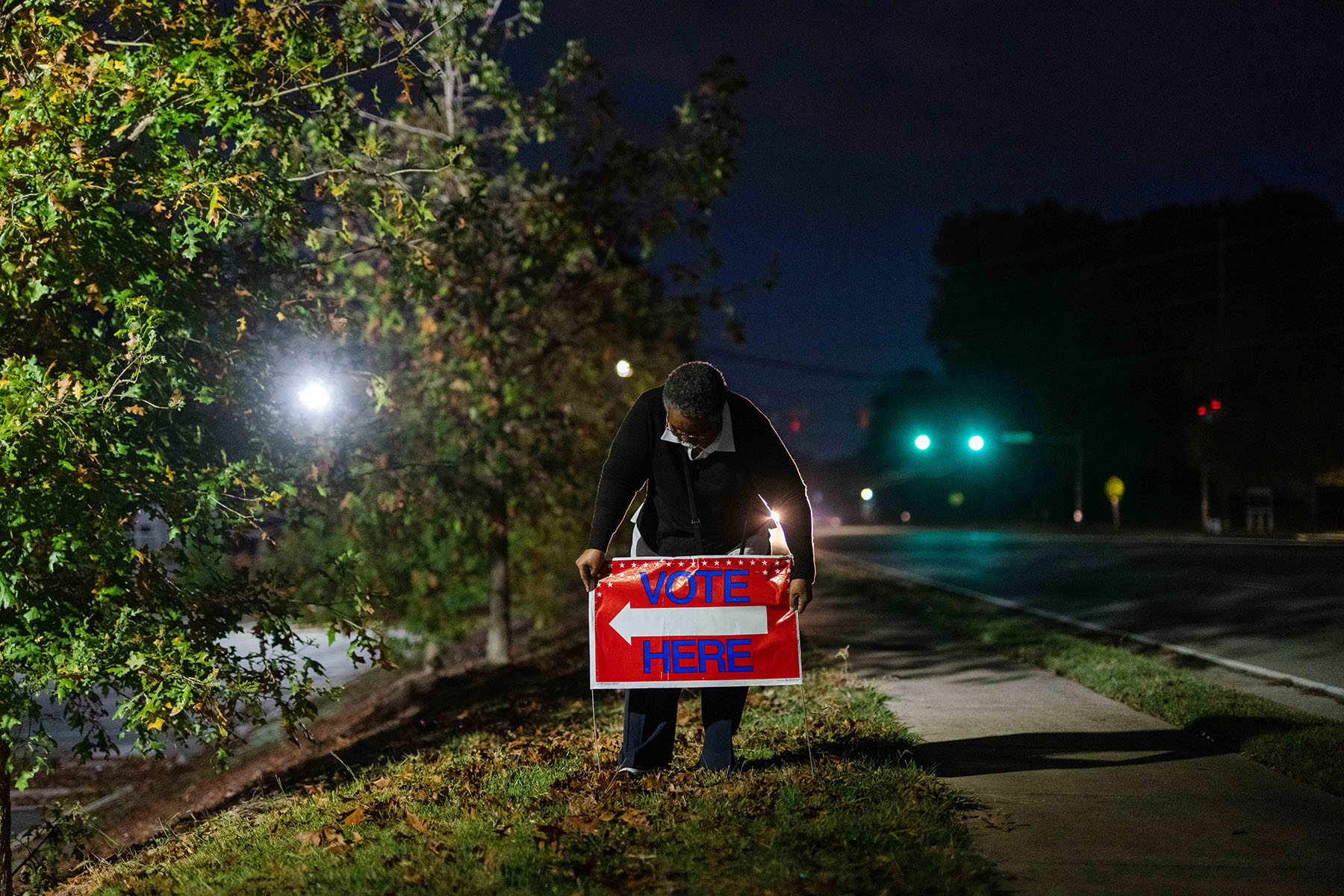
Bellows said consistent federal funding would help both pay election workers sufficiently and give them the tools to ensure elections remain safe and secure.
“One of the things that I often share with policymakers is consistency is key,” she said. “We need to have consistent sources of revenue to be able to plan investments and upgrades in our election technology and personnel.”
Fall, who was previously a deputy elections director in Arlington, Virginia, before coming to Georgia, noted that all four of the election director roles in major metro Atlanta counties have turned over since 2020.
“Maybe this is me trying to approach it with a glass-half-full kind of lens, but I see that as amazing. That means after 2020, when people decided to walk away from this field — for great reasons, no fault to them — people stepped up and people are still taking these jobs. They’re doing the work. We would not be doing this work if we did not care deeply about it,” she said.
Connelly said she often asks her California staff and peers why certain election procedures are in place, an open curiosity that she hopes brings fresh perspective to the job and encourages best practices.
“What we’re trying to do is say, ‘Yes, you can trust us. And guess what: There are people like me all over the country, doing the same thing — having a nonpartisan, very thorough approach,” she added.
Wichman in Ohio recalled a person who called her office about three years ago to complain about the election process. She invited him to a poll worker training to demystify the process — a move that has since made him a permanent poll worker.
“He said, ‘I had no idea what went into Election Day other than me just showing up to vote. There is a lot of security behind it and you guys do a lot of work to make sure everything is safe, that nobody knows about,’” she said. “That is true. We work really hard to make sure everything’s secure — and it’s not the two days a year that people think we work.”
Wichman encouraged others with questions to contact the local officials who want to help.
“These are people who live in your community who want the same thing you want — a safe and secure election,” she said.
